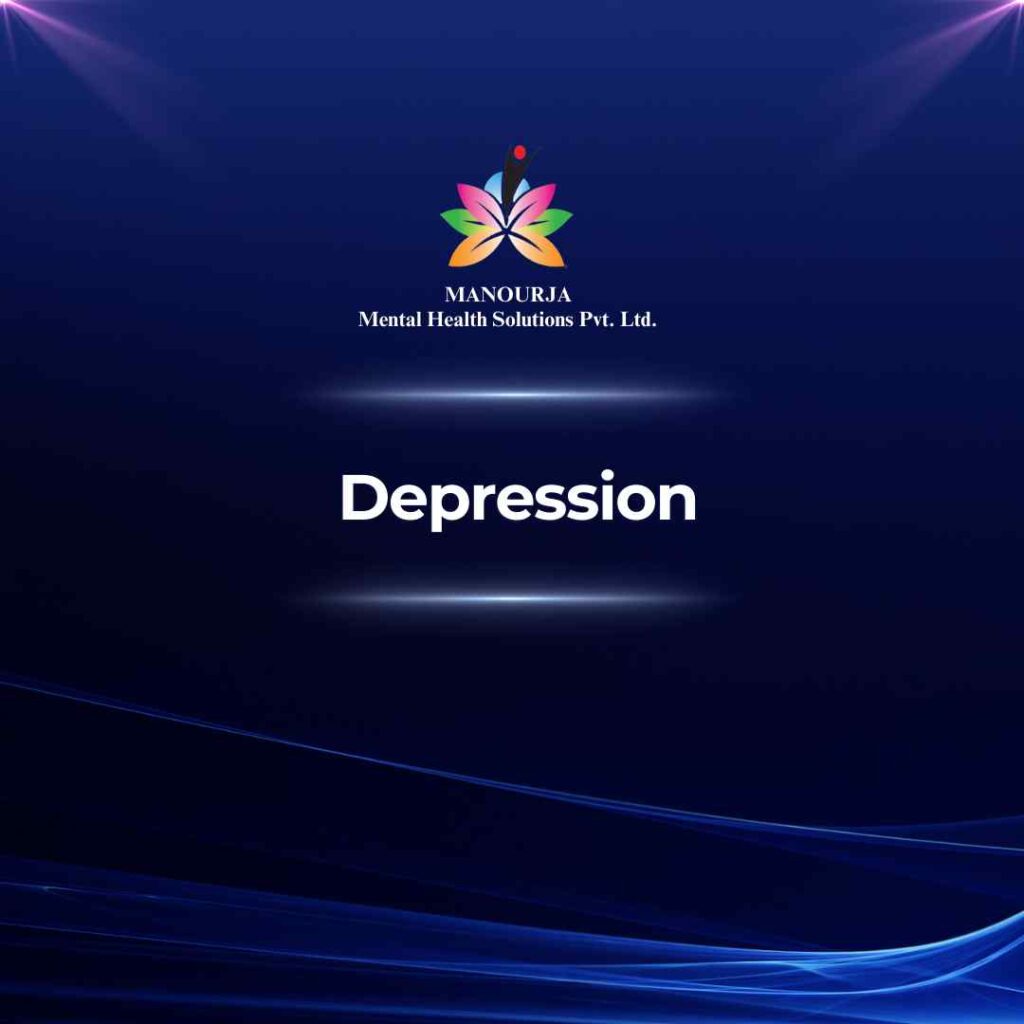Depression

Depression is a profound mental health condition characterized by persistent feelings of sadness, hopelessness, and loss of interest in activities that once brought pleasure. It affects how individuals think, feel, and handle daily activities, often leading to a variety of emotional and physical problems. Depression can occur due to a combination of genetic, biological, environmental, and psychological factors.
Depression as a Sign and Symptom of Mental Illness
Depression manifests through a spectrum of symptoms that significantly impact a person’s mood, thoughts, and behavior. These symptoms generally include:
- Persistent Sadness: Feeling persistently down or hopeless.
- Loss of Interest: Decreased interest in most activities.
- Changes in Appetite: Significant change in weight or changes in diet.
- Sleep Disturbances: Insomnia or excessive sleeping.
- Fatigue: Persistent tiredness or loss of energy.
- Feelings of Worthlessness or Guilt: Excessive guilt or feelings of worthlessness.
- Difficulty Concentrating: Trouble in focusing, taking decisions, or remembering things.
- Suicidal Thoughts: Thoughts of suicide, suicide attempts, or self-harm may come.
Mental Illnesses Where Depression is Present
Depression can be a primary disorder or a symptom of other mental health conditions. Here are common disorders where depression is frequently observed:
- Major Depressive Disorder (MDD): Characterized by persistent feelings of sadness or a loss of interest in activities once enjoyed. It is often accompanied by significant impairment in daily life.
- Bipolar Disorder: Features episodes of depression alternating with episodes of mania or hypomania (elevated mood, increased energy).
- Persistent Depressive Disorder (Dysthymia): A chronic form of depression lasting for at least two years, with periods of less severe symptoms.
- Seasonal Affective Disorder (SAD): Depression that occurs seasonally, typically in the fall and winter months when there is less sunlight.
- Postpartum Depression: Occurs after the birth of child and is characterized by feelings of severe anxiety, sadness and exhaustion.
- Premenstrual Dysphoric Disorder (PMDD): Severe mood swings, irritability, and depression before menstruation.
- Psychotic Depression: Major depression accompanied by psychotic symptoms like hallucinations or delusions.
- Anxiety Disorders: Depression can co-occur with anxiety disorders such as generalized anxiety disorder (GAD), panic disorder, and social anxiety disorder.
- Substance Use Disorders: Depression may develop as a result of substance abuse or withdrawal from substances.
- Eating Disorders: Conditions like anorexia nervosa, bulimia nervosa, and binge-eating disorder often involve depressive symptoms.
Conclusion
Depression is a complex and debilitating symptom that can significantly impair an individual’s quality of life. Recognizing depression as a symptom across various mental health disorders is crucial for accurate diagnosis and effective treatment planning.
At MANOURJA, we believe in the transformative power of counseling. Our experienced therapists offer a safe and supportive space where you can explore your thoughts, emotions, and challenges. Through personalized counselling sessions, we’ll work together to develop coping strategies, build resilience, and achieve lasting positive change. Discover the path to a healthier, happier you with MANOURJA counselling services.
MANOURJA Rehabilitation Services
At MANOURJA, we’re dedicated to helping you in rebuild your life, after difficult times. Our rehabilitation services focus on understanding what you need to move forward, whether you’re recovering from addiction, trauma, or any psychological – social challenges. We create personalized plans, that are all about helping you, regain your strength and find hope again. With a caring team by your side, you’ll have the support to make real progress and take steps toward a brighter, healthier future.
